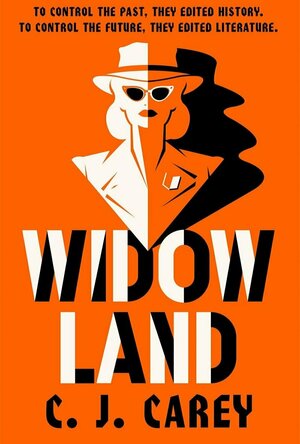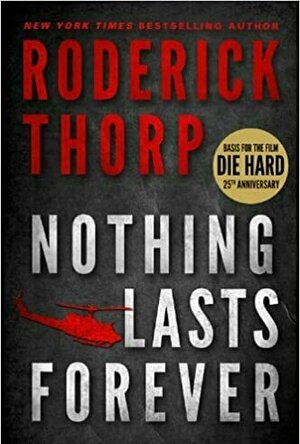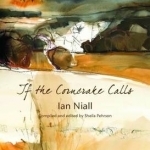
If the Corncrake Calls
Ian Niall, Sheila Pehrson and Barbara Greg (Illustrator)
Book
When the Scottish writer John McNeillie died on the 24th June 2002 aged 85, he left behind a legacy...

The Cleaner of Chartres
Book
'A lovely book ...wise at heart and filled with colourful characters' Joanne Harris, author of...

Project Quality Management: Critical Success Factors for Buildings
Sui Pheng Low and Joy Ong
Book
The book presents the development of the Construction Quality Assessment System (CONQUAS),...
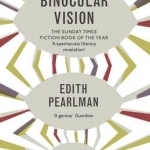
Binocular Vision
Clare Skeats and Edith Pearlman
Book
Edith Pearlman's Binocular Vision are the collected stories of an award-winning author who has been...

Brilliant Baby Names: How to Choose a Name That You and Your Child Will Love for Life
Geoff King and Laura King
Book
The name we are given by our parents has a big impact on us. Throughout our life, from the...
Even though there’s a huge shortage of young men (they’ve been ‘shipped off’ to the rest of occupied Europe to ‘work’) and women greatly outnumber men, women are divided into categories, or castes. These depend on their age, heritage, reproductive status and physical characteristics, and each category is named after a significant woman in Hitlers life. Rose is a Geli, one of the elite. Young, beautiful, and most importantly, fertile.
I thoroughly enjoyed this and read it far too quickly. It had a black and white, 1950’s movie atmosphere about it, and I could easily picture the people and scenes in my head. It brought to mind The Man in the High Castle with regards to Occupation, and 1984 with regards to feeling as though you’re constantly watched - as well as the people being told how to react, think and live. This was especially evident in Rose’s job: she rewrites classics so that they’re in line with the regimes ideals: so no independent, strong females, and all the male leads are changed to Sturmbannführer (at least!).
The drudgery of everyday life made me think of how I envisaged life in the GDR - as well as only allowing state sanctioned literature, there was only one radio channel in Grand Alliance Britain, with some brave people listening to illegal foreign radio stations, knowing that this could result in extreme punishment.
When Rose goes to Widowland near Oxford (there are a few throughout the country) to find the source of a potential rebellion, she’s shocked to see older women living in abject poverty, only permitted to eat a subsistence diet and work menial jobs. But these women are intelligent, and they’re not happy in their state regulated lives. Between her reading of classic books and meeting these women, Rose begins to see what’s wrong with the world she has been living in, and this dawning realisation is so well described. We see how reading ‘subversive’ classics seems to get under her skin, and how she realises that the treatment of women is wrong in this Grand Alliance.
I could go on and on. I raced through this book, and I loved the ending, which came far too quickly!
Many thanks to Quercus for my copy of this book through NetGalley.
Benedick Lewis (3001 KP) rated Nothing Lasts Forever (Die Hard, #1) in Books
Sep 30, 2020
However, having seen Die Hard multiple times, it was sometimes difficult to picture the protagonist, Joe Leland, doing the John McClane things. Further more, the book only depicts Leland’s point of view and the story could have benefited from being told from multiple perspectives: Leland’s, the terrorists and the hostages. Unfortunately, the terrorists’ motive is summed up in one page and it doesn’t wholly satisfy, especially given in the film, the plot is more devious and fiendishly clever giving cinema one of its all time greatest villains.
To talk more about the comparisons is doing literature an injustice. Time and again, it needs to be reminded that they are two different mediums with different requirements. That said, there is definitely one big major difference that really distinguishes the two products of this idea and the only thing that can be said is that it is towards the end. Those that know the film and decide to read this book will know when you get to that part but it is one that really sets it apart.
Frank Sinartra played Leland in the prequel to this book, The Detective. It’s not essential that you read that book first to understand this one. Author Roderick Thorp plays catch up in the opening chapters. He does however spoil that story so if you are looking to read that, best put this to one side.
Thorp’s style is a little all over the place, especially regarding the set pieces and it can be difficult to imagine the scenes he is trying to depict. Leland is not the most likeable of heroes either and it can be difficult to root for him but it is a short story and can be done in one sitting so it’ll be over before you have the time to really dislike him.
Read this if you haven’t seen Die Hard. Read this but make sure you watch Die Hard rather adjacent to that. It would be surprising if you found the book better. In this case, the film is superior. A rare case indeed.
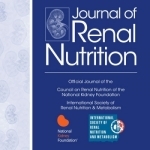
Journal of Renal Nutrition
Medical and Magazines & Newspapers
App
Journal of Renal Nutrition Official Journal of the Council on Renal Nutrition of the National Kidney...

Trivial Pursuit: Master Edition
Tabletop Game
Thee Trivial Pursuit Master Edition game adds a modern twist to the classic game you love. It will...
